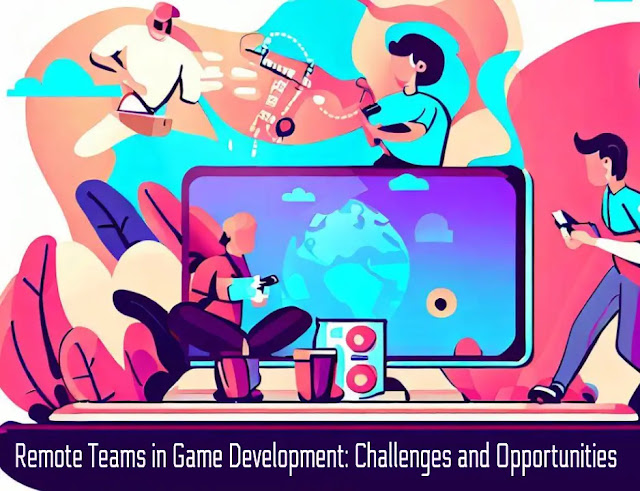Remote teams in game development have become increasingly popular in recent years, and for good reason. With the rise of technology and the internet, it's easier than ever to work with people from all over the world. This has opened up a world of opportunities for game developers, allowing them to collaborate with talented individuals who they may not have had access to otherwise.
However, remote teams also come with their own set of challenges. Communication can be more difficult when team members are spread out across different time zones and cultures. Additionally, remote workers may feel isolated and disconnected from their colleagues, which can lead to decreased motivation and productivity.
In this article, we will explore the challenges and opportunities of remote teams in game development. We'll discuss how to overcome communication barriers, maintain productivity, and build a strong team culture. Whether you're a game developer looking to expand your team or a manager trying to navigate the world of remote work, this article will provide valuable insights and practical tips for success.
Challenges of Remote Teams in Game Development
Communication
One of the biggest challenges of remote game development teams is communication. Without the ability to walk over to a colleague's desk and ask a question, remote teams must rely heavily on communication tools such as email, instant messaging, and video conferencing software. However, these tools can sometimes lead to miscommunication and misunderstandings, especially if team members are in different time zones or have different native languages. In addition, remote teams may struggle with maintaining a sense of team cohesion and culture, which can further hinder effective communication.
Collaboration
Collaboration is another challenge that remote game development teams face. Without the ability to physically work together, team members may struggle to share ideas and work on projects in real-time. This can lead to delays in the development process and a lack of innovation. In addition, remote teams may struggle to establish and maintain a sense of trust, which is essential for effective collaboration.
Management
Managing a remote game development team can also be challenging. Without the ability to monitor team members in person, managers must rely on communication tools and project management software to stay up-to-date on the status of projects and the productivity of team members. In addition, remote teams may struggle with maintaining a sense of accountability and responsibility, which can lead to missed deadlines and a lack of motivation.
Overall, remote game development teams face a number of challenges that can hinder their ability to work effectively and efficiently. However, by implementing effective communication strategies, fostering a culture of collaboration and trust, and utilizing project management software, remote teams can overcome these challenges and thrive in the game development industry.
Opportunities of Remote Teams in Game Development
Despite the challenges, remote teams in game development also present a number of opportunities. By working with talented individuals from all over the world, game developers can tap into a diverse range of skills and perspectives. Remote teams also have the potential to work more efficiently, as team members can work from their own homes or offices, eliminating the need for costly office space and equipment.
In addition, remote teams can help foster a more inclusive and diverse industry. By removing geographical barriers, remote work can allow game developers from all over the world to work on the same projects and contribute their unique perspectives and experiences.
Conclusion
Remote teams in game development face a number of challenges, but with the right strategies and tools, these challenges can be overcome. By establishing clear communication guidelines, using collaborative tools, and setting clear expectations, remote teams can work effectively and efficiently, while also tapping into the many opportunities that remote work presents. Whether you're a game developer



